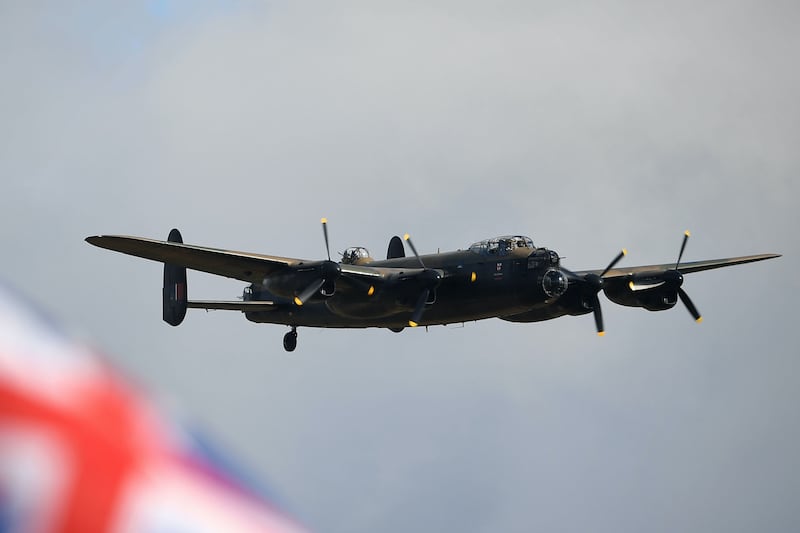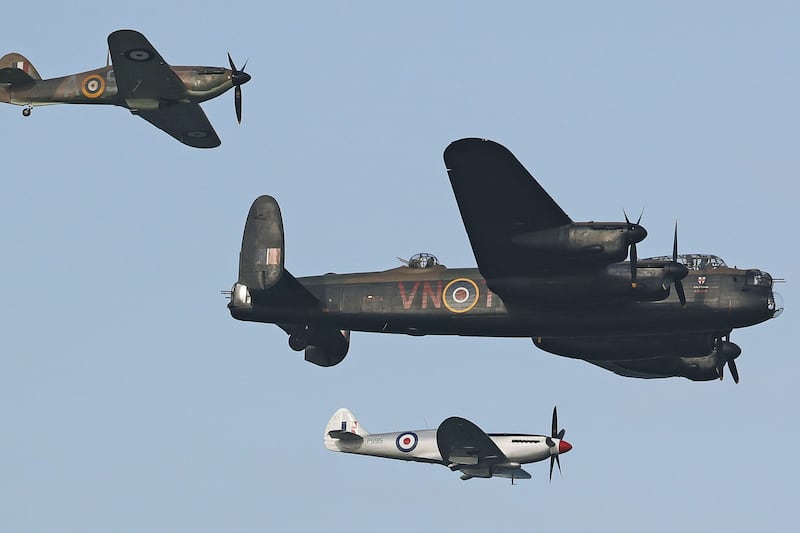The King paid a heartfelt tribute to Second World War RAF veterans as he commemorated the 80th anniversary of the famous Dambusters raid.
Charles visited the home of the Battle of Britain Memorial Flight (BBMF) in Lincolnshire where famous aircraft such as Spitfires, Hurricanes and a Lancaster bomber – the aircraft used in the audacious 1943 raid – are kept airworthy for major displays.
The veterans were enjoying afternoon tea in a giant hangar, with BBMF air, ground and support crews surrounded by many of the historic planes, when the King arrived, and many of the elderly men, in their late 90s and some aged more than 100, joined the guests in standing.
When he stopped at one table the King sat between two veterans and referencing the RAF servicemen maintaining and flying the aircraft said, “thank God for all these men” and he put his hand on the arm of a elderly man adding “people like you looked after us”.
At another table he asked the veterans “these sorties you went on to Germany, how long were you in the air for” and a few moments later he said: “Being shot at the whole time I suppose that’s the horror (of being) a target.”
Colin Bell, a former flight lieutenant who flew Mosquito bombers with 608 Squadron, known as the Pathfinder Group, made the King laugh when he told him “I’m 102 and a half – don’t forget the half”.
The spritely pensioner only stopped working as a chartered valuation surveyor when he was 99, joking “well, I thought I’d paid the Chancellor of the Exchequer enough money”.
Commenting about the criticism RAF Bomber Command has received over the decades for targeting German cities during the war, he replied: “We’re criticised by people who would not have come into existence If we had lost the war.
“And this is the most important thing, the objective of Bomber Command was to destroy the German capability of attacking us, that and nothing more.
“We weren’t interested in killing civilians, we were only interested in destroying their cities that were producing armaments and other weapons to be used against us. And by and large, I think Bomber Command did a very good job.”







